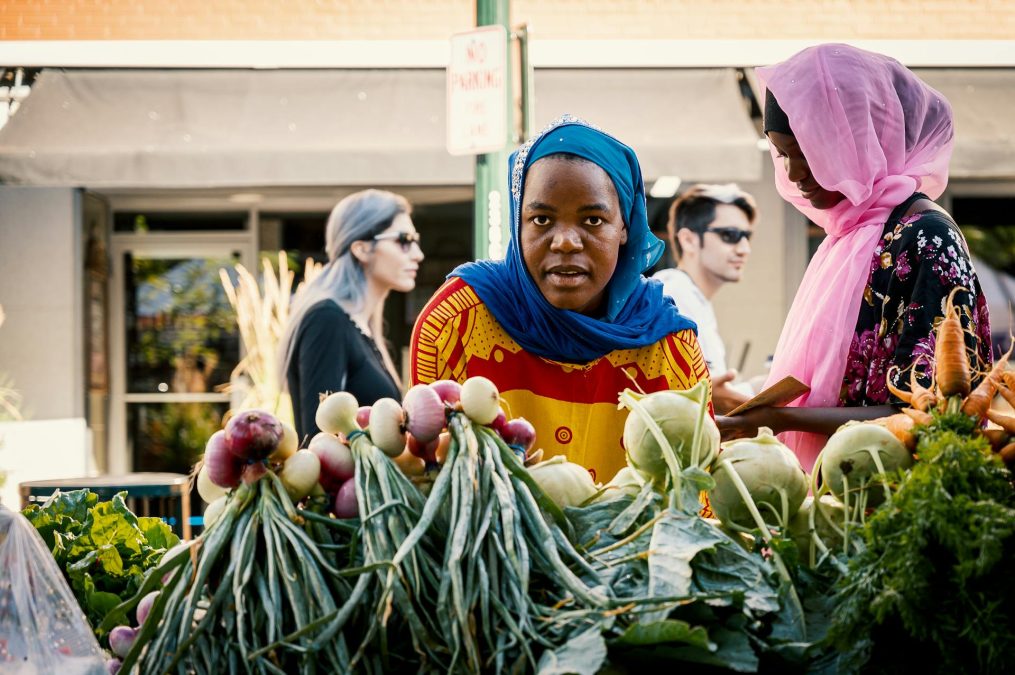Creating gender-responsive opportunities for women’s entrepreneurship in agribusiness can empower them, advance gender equality and food security, enable job creation and promote the overall well-being of families.
Women are key players in agri-food systems across the world and constitute a formidable part of the agricultural labour force in developing countries. Yet, they remain poorly represented in agribusinesses, owning only one-third of small- and medium-sized enterprises in emerging markets.
Their exclusion can mostly be attributed to their limited access to land, resources, markets, skills and knowledge; lack of agency in decision-making; and the gendered division of labour due to prevalent sociocultural norms.
Promoting women’s engagement in agribusiness can be an important factor in their empowerment. It not only gives them an opportunity to be a part of an income-generating group but leads to socio-economic empowerment, improves their agency, creates jobs and promotes the overall economic growth and well-being of families.
Mapping evidence about effective interventions promoting women’s entrepreneurship in agribusiness
We developed a (forthcoming) evidence gap map to capture the nature of existing evidence on the effectiveness of interventions to promote women’s entrepreneurship in agribusiness in low- and middle-income countries.
The evidence and gap map is a visual, interactive representation of 170 studies published in English, comprising both completed and ongoing systematic reviews and impact evaluations from low- and middle-income countries. It maps relevant, available, systematic reviews and impact evaluations and provides detailed database entries for the included studies. Each entry summarises the intervention, context, study design and main findings.
The framework we adopted to map the studies was informed by the Women’s Empowerment in Agriculture Index (WEAI), which is designed to measure the empowerment, agency and inclusion of women in the agricultural sector.
The evidence and gap map classified interventions into four broad categories:
- interventions targeting access to a range of resources, including markets, finance, training and ICT tools critical in helping women advance their skills in entrepreneurship
- interventions delivered through institutions and policies
- interventions focusing on support networks
- interventions addressing gendered norms at the family and societal level.
The effectiveness of these interventions was assessed based on their impact on women’s empowerment, specifically: income, assets, livelihood growth, capacity building, financial literacy, agency, awareness of relevant socio-economic policies, representation, well-being, entrepreneurial motivation, and established norms.
Most evidence showed how interventions increase women’s entrepreneurship capacity
Evidence across the intervention categories came primarily from process evaluations and randomised control trials. Studies predominantly reported on interventions aimed at improving women’s access to finance, markets, training, and information and communication technology (ICT) tools that provide women with important information on agricultural production and marketing.
Most of the evidence demonstrated the impact of interventions on women’s capacity—their technical, business and financial knowledge, training, and behaviour. In contrast, very few studies examined interventions that focused on developing support networks for women, such as farmer cooperatives and self-help groups.
Few studies examined the effectiveness of interventions in promoting women’s agency and self-worth, or creating an enabling environment where women are aware of their social, economic and labour rights.
Biggest evidence gaps: support-network interventions, interventions to create enabling business environments
There is a paucity of studies that specifically analyse women’s empowerment through the lens of agribusiness and related entrepreneurial opportunities. There is also limited evidence about support network interventions and the overall effect of interventions on creating an enabling business environment for women.
Current evidence inadequately details the specific effects of interventions on the intersectionality of race, ethnicity and gender, which future studies should examine for how they impede women’s entrepreneurship in agribusiness.
Policy implications of the evidence and gap map
The evidence and gap map reveals there is substantial evidence about the impacts of training interventions focused on providing women business, financial, vocational and ICT training. Future policies can draw on this evidence for direction on what works to increase women’s financial knowledge and their entrepreneurial capabilities.
However, there is a need to initiate interventions that promote women’s awareness of their social, economic and labour rights; and emphasise the importance of keeping them informed about socioeconomic policies and regulations committed to improving conditions for agribusiness entrepreneurship.
More holistic assessments of interventions are needed to show how interventions enhance women’s overall support systems and gender parity within households. More studies are also needed on support network interventions, such as how farmer cooperatives, self-help groups, and mentorship initiatives are created. These studies should capture the effect of interventions on all facets of empowerment to provide more evidence about how interventions can create a positive environment for women in agribusiness.
In-depth qualitative evaluations would help to capture stakeholder perspectives and implementation challenges, and to uncover the precise mechanisms of interventions that result in positive outcomes.
More experimental research, especially randomised controlled trials, are needed where there is an evidence gap, with a focus on research directed at understanding the impact of support network interventions and the nature of interventions that produce a positive entrepreneurial environment for women. Additionally, although there are plenty of studies on what works to empower women, there is a need for more research examining women’s empowerment in entrepreneurship in agribusiness.
References
Scientific publication
The situation of women in the agribusiness sector in Africa
Scientific publication
Environmental and gender impacts of land tenure regularisation in Africa: Pilot evidence from Rwanda
Scientific publication
The Women’s Empowerment in Agriculture Index
Working paper
Business Training and Female Enterprise Start-up, Growth, and Dynamics
Working paper
The role of women in agriculture
Periodical/ Journal
Problems and Prospects of Woman Entrepreneurship – A Review of Literature
Report
Strengthening Women’s Entrepreneurship in Agriculture in ASEAN Countries
This piece was initially published on the CGIAR Gender Impact Platform blog and has been revised to suit Farming First’s editorial guidelines.




